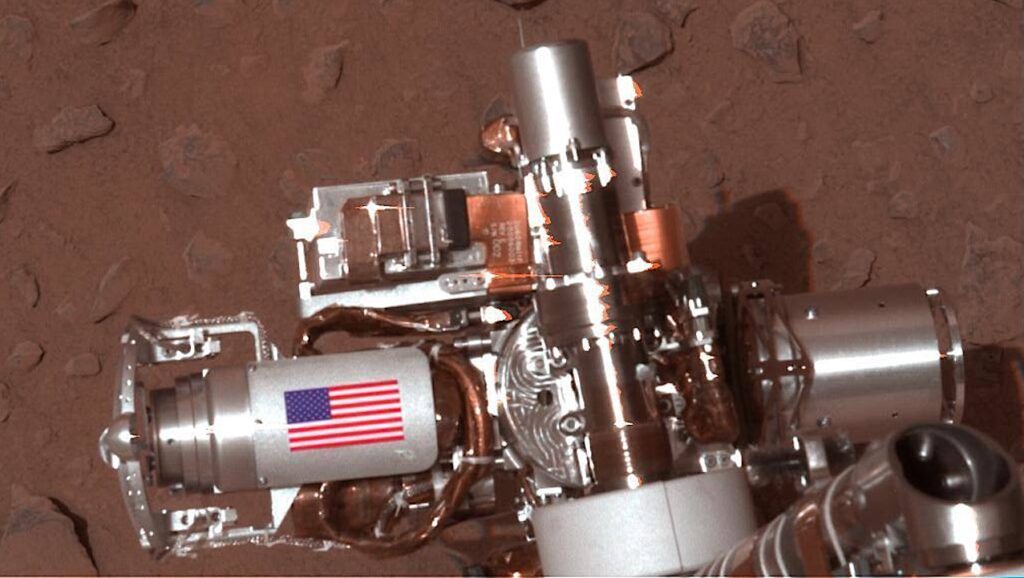NASA Advisory Council: NASA Human Exploration Plan Insufficiently Funded

NAC Gets Stuck on Mars Technology Development Finding, Space Policy Online
“The NASA Advisory Council (NAC) reached agreement on a number of findings and recommendations at its meeting over the past two days. Its finding about the Asteroid Redirect Mission has received widespread attention, but other important topics also were discussed. One case where consensus could not be reached was a proposed finding that NASA’s technology development effort in support of a human mission to Mars is underfunded. The NAC meetings are lively affairs and it can be difficult to keep track of where a finding or recommendation stands with all the crosstalk and conversations. Eventually, those that are approved are posted to the NAC website, sometimes after additional wordsmithing. The posted versions on the NAC website are the definitive authority. Until then, here are some of the key points and where they seemed to end up. The proposed finding that ran into headwinds was championed by Bill Ballhaus who chairs NAC’s Technology, Innovation and Engineering Committee. The strongest objection was voiced by Dave McComas who chairs the NAC Science Committee.”
|
|









Some seem scared to stand up and call the kettle black. Who is it that is objecting there? The statement they are backing away from is:
“The current human exploration technology plans being implemented by STMD and HEOMD are inadequately funded to make the necessary progress in the near term to have a credible Humans to Mars program.”
By giving each member a liberum veto, they are missing the chance to really stand up and make some noise.
[Titanic First Officer]: Captain! We have struck an iceberg, there is a 20-meter gash in the hull below the waterline and the ship is flooding uncontrollably. We will sink within the hour.
[Captain]: This is a pretty damning statement. Lets be certain what we mean.
(Sorry. Squyres has been doing his best to convey truth to those who don’t want to hear it, but I couldn’t resist.)
And it is not, of course, as if this politically incorrect observation is new news:
http://www.planetary.org/bl…
2013/06/19 21:38 UTC
Congressman Bill Posey (R-FL) leaned forward as he asked his question of the House Science Committee’s guest panel, “If we started today, how long would it take to land a human on Mars?”
Tom Young, on the panel, laughed a bit and asked, “With today’s budget for NASA or the Apollo-era budget?”
“Both,” said Posey.
“With the current budget,” answered Young, “probably never. With Apollo-era, maybe by 2025.
Posey has made tax cuts his primary policy objective, so the provision of an Apollo-era budget is unlikely. Nevertheless if we develop LEO infrastructure first and focus on cost reduction, it’s possible we can do some remarkable things.
It is just possible – just – that this tax-cutting silliness is beginning to run out of steam (see Kansas). Congressional representation will continue to spout nonsense for another decade or more due to gerrymandering.
The end is in sight for these crazy knuckleheads, though. It has taken nearly 50 years.
Sorry. No end is in sight so long as political parties can gerrymander districts, and given the arrangement of many districts, we’re unlikely to see any real changes in congressional makeup or behavior.
That is why Space Act agreements, instead of GSA contracts, are the direction that NASA has pursued. By empowering people outside the circle of congressional districts and tax funding to go out and do for themselves, NASA cuts their own costs.
There is an online JPL class, “Basics of Space Flight” that people can take that is very enlightening about what NASA wants to do. They want to do scientific discovery. Building a particular first ever launcher is scientific discovery, but building that same launcher and launching again, or relaunching the previous one, is a launch program. Scientific organizations do not operate transportation systems, businesses do that.
Mars can never be a “flags and footprints” mission, because you have to live there until Earth swings back around again to get you. If you can live there for a year then your not going there to visit, your moving in.
Going to the moon is like a Space Shuttle mission, you go out with your own supplies and life support system and you return with your own garbage. Going to Mars is more like an ISS mission, you, your supplies and garbage go up and down on separate, schedules and the life support system stays there. It’s not a camper trailer, it’s a summer home and once you have one anyway then you have to keep it supplied with a launch program that sustains itself free from without Congressional and Presidential whim.
I have always thought a goal of ISS should self sustainablity. Don’t I recall that they were going to try that with a transhab module on ISS were they similated survival for the length of a Mars mission only to have Congress outlaw doing any work for Mars?
Why are we surprised? The Augustine committee said that if NASA didn’t get another $3 billion a year for human exploration, NASA wouldn’t be able to do anything significant in the area. Obama didn’t want to give NASA the money, and they haven’t done anything. Score another one for Augustine.
PS: As President, not giving NASA the money is his perogative.
Congress gives NASA its funds.
And the Whitehouse develops a vision for the future with leadership to get everyone on-board to accomplish that vision. Instead we get leadership that effectively tells half of the nation to go piss off. Obama has chosen not to work with half of Congress from day 1 and that is why he has accomplished nothing that will have lasting value, space exploration included.
I agree that the polarized and hostile political atmosphere that has evolved in our country is an obstacle to many valuable goals. But placing the blame for the poisonous state of American politics today on one person with whom you happen to disagree is a demonstration of that partisanship, not an answer to it.
🙂
Relative to overall state of political tone, I would agree it is not just a single person. But we are talking about leadership here and that comes (or should come) out of the White House. You will not get leadership from a caucus of 100 or a caucus of 435. However, on a wide range of issues that include space, this White House has provided no leadership and even worse, muddled messages that indicate apathy or indecisiveness. Hardly strong qualities in a leader. And with all due respect, the approach taken recently of everything by executive order indicates an unwillingness to even work with the body of government that represents the voting majority of the US population. Does he respect those voters? His actions says he does not.
I must respectfully disagree. When one party in Congress sets itself the goal of blocking rational and well-presented proposals of the Administration, such as the return of human spaceflight to the US through the allocation of adequate resources to the Commercial Crew program, then that party and its members who obstruct that progress must accept responsibility for the adverse effects that result, in this case the long gap in US human launch capability.
You mean like the ARM mission? That’s rational and well presented? Lunar vs Mars priorities? Not. Obamacare? That’s a shining example of rational and well presented – not. Net neutrality? Immigration? TARP? Response to the Arab Spring? The list goes on and it spans the spectrum of national and international failures. And in case it isn’t obvious, the opposition party’s number one responsibility is to oppose bad policies. That they haven’t opposed nearly enough or with enough conviction to stick to basic conservative positions on fiscal policy is a bigger issue. But that is OT.
It’s probably time to revisit comments made my Mitch McConnell et al immediately after Obama’s first election.
Daniel Woodard is correct: poisonous political partisanship can not be blamed on any single person.
So they won’t even have the money after ISS goes down? That’s depressing.
Also, this is why they have closed-door briefings. That way they don’t have to bother with politico-speak.
I’m not sure ISS should ever go down, except when replaced by more modern hardware. If we cannot make human spaceflight productive and sustainable in low Earth orbit, we will certainly be unable to do so on the Moon or Mars where costs are much higher.
You’d have to define “productive”. ISS at this point (or by 2024) won’t be telling us much more of use about manned spaceflight than actually carrying out missions beyond Low Earth Orbit, and NASA’s budgetary situation is such that they’re not going to get the funding to operate a sizable space station and carry out farther out manned missions at the same time.
Despite the limited attempts so far, there are a wide spectrum opportunities for earth and space observation, vehicle servicing and refueling, microgravity science, space technology (e.g. electric propulsion) and tourism. Under PI Sam Durrance we recently flew a microbudget Nanoracks/SpaceX/ISS payload that examined protein amyloid aggregation (the mechanism of both Alzheimer’s and Parkinson’s disease) in weightlessness to study the role of fluid convection in protein aggregation. We need to get away from hype and provide modest but consistent resources for those who are working to provide practical benefits for America. http://science.nasa.gov/sci…
Mars missions, manned or unmanned, must also be productive in terms of both cost and value. If we cannot increase the value, we must find ways to decrease the cost.
I suspect that since a NASA Mars mission is at least 15 years away, that getting rid of the SLS WOULD provide most of the funding needed if it were done in strong partnership with private industry. If we assume that private vehicle development would be 1/5 of NASA cost, and that with use of reusable boosters and space vehicles, operational costs would be 1/10th of NASA cost estimates, (and since development costs tend to be less than operational costs), then an estimate of about 40-50 Billion for development and an initial Mars mission would be about 1/10th of $400 to $500 Billion. Two Billion a year for 15 years provides $30 Billion. That should be enough for development assuming the above provisos are followed.
The real problem is that for political reasons, NASA cannot admit that use of the SLS for lunar base or Mars missions is fiscally impossible as it could not afford to build and launch enough of them in a short time. This situation is as much the fault of Congress as the fault of NASA. As long as this situation continues, little or no funds will be available for lunar or Mars mission vehicle and equipment development by the government.
If you think that having NASA involved in a cost going from 40 billion to 400 billion, do you think that NASA has any use at all?
Dr. Squyres has a certain prejudice, methinks.
I’ve got a feeling that it isn’t so much going to Mars that is expensive, it is the way NASA and the arsenal system insists on doing it.
I’d love to see NASA Watch publish a graph showing the Administration’s proposed NASA budgets superimposed on top of a graph of the actual NASA budgets as passed by Congress. That is the hard data missing from this political finger pointing discussion.
“NASA Human Exploration Plan Insufficiently Funded” Well it all depends. If you tell the President and OMB that all you want to do in the next generation is visit an asteroid in your Apollo redo, and if you make little or no effort to reduce your current costs (like maintaining ISS ans pending the inordinate amounts for Orion and SLS) then this is a correct statement, and yes, you’ll never have enough. But, if your hope is to do something more and you lay out a logical plan for developing an outpost or a landing capability, and you say that you can contribute a portion to make it happen and you need the Feds to ante up a marginal increase to be able to start developing a lander, then if you make the case you might get the support. NASA’s leadership has taken the former position, that no more funding is in the works and therefore they have resigned us to a position in which we make no progress. They have taken this position for ten years, and when there was talk of increases they squandered the potential for increased funds by ridiculously pricing themselves out of reach. If they do not do the latter, and lay out the strategy and define the funding requirements, then they for sure will get no additional funding. Its not how any prior NASA Administrator has functioned.